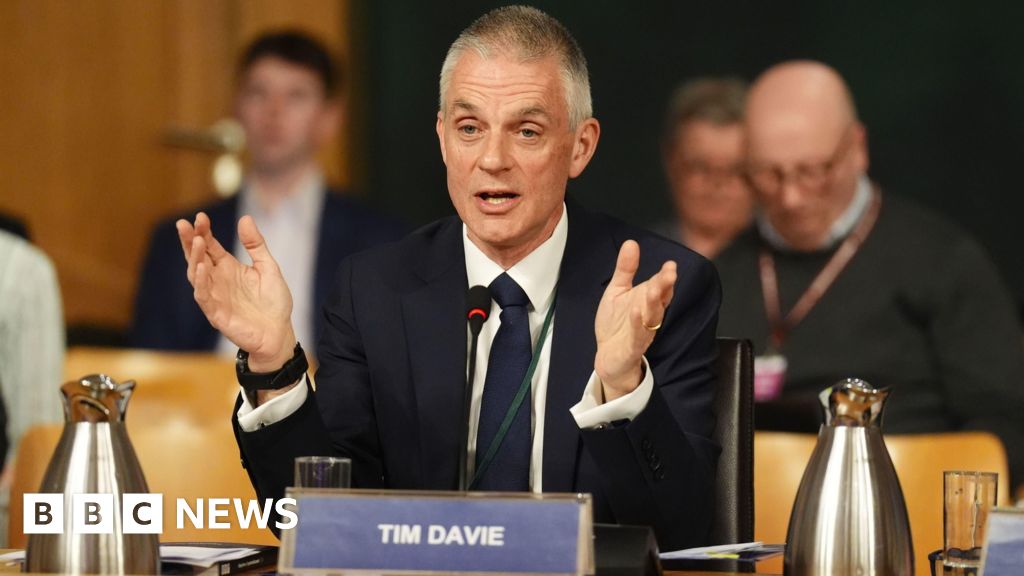Why have bosses Tim Davie and Deborah Turness resigned?

BBC Director General Tim Davie and News CEO Deborah Turness Resign Amid Editorial Controversy In a stunning turn of events, BBC Director General Tim Davie and CEO of News and Current Affairs Deborah Turness have both resigned, citing editorial missteps and the resulting damage to the corporation's reputation. The resignations follow intense scrutiny over a recent Panorama documentary that allegedly misrepresented a speech by former US President Donald Trump, as well as concerns raised about the BBC's coverage of other sensitive topics.
Controversy Over Trump Documentary Fuels Crisis The immediate catalyst for the resignations appears to be the fallout from a Panorama documentary titled "Trump: A Second Chance?" broadcast shortly before the recent US presidential election. The documentary was criticised for editing Trump's speech on January 6, 2021, in a way that allegedly made it seem as though he was explicitly urging supporters to attack the US Capitol. A leaked internal memo, penned by former BBC editorial standards advisor Michael Prescott, highlighted the issue and accused the BBC of inaction. The edited version of the speech juxtaposed the phrases "We're going to walk down to the Capitol" with "and I'll be there with you. And we fight. We fight like hell," despite the phrases being spoken over 50 minutes apart in the original address. This alteration prompted accusations of distorting the events of that day and undermining public trust in the BBC. Acknowledging the error, BBC Chair Samir Shah stated that the corporation accepted "that the way the speech was edited did give the impression of a direct call for violent action" and issued an apology.
Davie and Turness Take Responsibility While Davie did not explicitly mention the Panorama documentary in his resignation statement, he acknowledged that "the current debate around BBC News has understandably contributed to my decision." He added, "Overall the BBC is delivering well, but there have been some mistakes made, and as director general I have to take ultimate responsibility." Turness was more direct, stating that "the ongoing controversy around the Panorama on President Trump has reached a stage where it is causing damage to the BBC – an institution that I love." She continued, "As the CEO of BBC News and Current Affairs, the buck stops with me - and I took the decision to offer my resignation to the director general last night." She also defended BBC News against accusations of institutional bias, stating that "while mistakes have been made, I want to be absolutely clear recent allegations that BBC News is institutionally biased are wrong."
Wider Concerns About Impartiality Beyond the Trump documentary, concerns have also been raised about the BBC's impartiality in other areas. The Telegraph newspaper reported that Prescott's memo also highlighted "systemic problems" of bias in BBC Arabic's coverage of the Israel-Gaza conflict and questioned the BBC's approach to reporting on transgender issues. Regarding BBC Arabic, Shah stated that action has been taken to address "underlying problems," including restructuring the team, appointing a new Head of Editorial Quality and Standards, and establishing a social media research unit. The BBC has also faced scrutiny over its coverage of trans issues, including a recent case where a presenter altered a script to replace "pregnant people" with "women," leading to complaints of impartiality.
Expert Analysis: A Crisis of Trust "These resignations represent a significant crisis for the BBC," says Professor Jane Williams, a media ethics expert at the University of London. "The perception of impartiality is paramount for a public service broadcaster, and the allegations surrounding the Panorama documentary have severely damaged that trust. The BBC needs to take concrete steps to address these concerns and rebuild its credibility with the public." Another media analyst, David Elstein, former CEO of Channel 5, suggests the issue goes beyond a single documentary. "There's a growing sense that the BBC's commitment to impartiality is being tested," he says. "The corporation needs to ensure its editorial processes are robust enough to prevent bias, whether conscious or unconscious, from influencing its reporting."
Looking Ahead: The Search for New Leadership The BBC Board now faces the challenge of finding suitable replacements for Davie and Turness. Potential candidates rumored to be in the running include former BBC chief content officer Charlotte Moore, experienced TV executive Jay Hunt, and former BBC head of news James Harding. The new Director General will be the 18th in the BBC's history and will play a crucial role in shaping the corporation's future, particularly as the government prepares to review the BBC's Royal Charter before its expiration in 2027. Dame Caroline Dinenage, chair of the Culture, Media and Sport committee, emphasized the need for the BBC Board to "begin the long process of rebuilding the corporation's reputation, both at home and abroad." The coming months will be critical in determining whether the BBC can successfully navigate this crisis and reaffirm its commitment to impartial and trustworthy journalism.
Originally sourced from: BBC Entertainment
